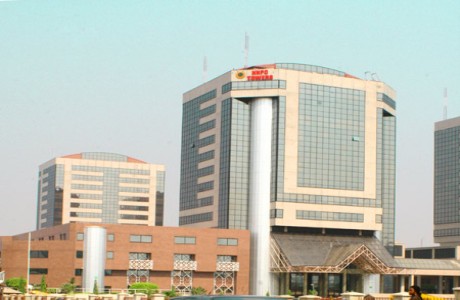The Nigerian Government’s policy four years ago that investment in the downstream sector, particularly in refinery projects, would be the condition for issuance and renewal of concessions and oil licences, none of the International Oil Companies (IOCs) operating in Nigeria has indicated interest to build a refinery in the country.
Local newspaper THISDAY gathered that these oil majors, which currently account for about 95 per cent of Nigeria’s oil production, had been unwilling to invest in refinery projects because the downstream petroleum industry sector had remained regulated.
A top management official of the one of the multinational companies told THISDAY at the weekend, that no rational entrepreneur would build a private refinery in a country, where products prices are set by the government.
He said a regulated downstream regime cannot attract investment in refinery and suggested that the Nigerian government should address the issues that are hampering investments in refineries, rather than come out with policies that are not implementable.
The industry expert said the proposed refinery deals between the Nigerian National Petroleum Corporation (NNPC) and China State Construction Engineering Corporation’s (CSCEC) for the construction of additional three Greenfield Refineries and a Petrochemical plant in Nigeria, at a cost of about $28.5 billion might not work out as scheduled expect the industry is fully deregulated.
Specifically, he said attaining the set target of boosting refining capacity to 1million barrels per day (bpd), from the current 445,000 bpd in the next three years would remain a mirage as according to him, the coming on stream of the new refineries can only be guaranteed in a fully deregulate regime.
He said: “If Nigerian Government is serious about getting investors to build refineries in the country, the first step should have been the deregulation of the downstream petroleum sector. Fine, government said the passage of the Petroleum Industry Bill (PIB) will pave way to full deregulation of the downstream sector, but what progress has government made in this direction?. The PIB has been with the National Assembly since 2008 and everything is now at a standstill.
So it is important that all obstacles to investment in refineries, including factors that would hamper their operation as business concerns be removed. When this is done, the IOCs and others can now have the guarantee that they will recoup their money”.
The Nigerian Federal Government, through the Department of Petroleum Resources (DPR), had in 2008 issued a directive that investment in the downstream sector, particularly in refinery projects, was the condition for issuance and renewal of concessions and oil licences to the IOCs in Nigeria. Government had directed the DPR, oil and gas industry regulator, that oil majors that failed to meet the fresh condition would not be issued with oil licences and would also not have their concession renewed. Despite this directive, the oil majors had remained uninterested in building refineries in the country.
In the May 2006 and 2007 oil licensing rounds, the DPR had given right of first refusal on some prolific blocks to local and foreign investors that made pledges to invest in power projects, refineries and railway lines. However, none of these companies that won the blocks eventually made any serious commitment to invest in these strategic infrastructure.
A former DPR Director recently explained that government’s insistence that oil companies must invest in refineries as pre-condition for the renewal of their oil blocks might have accounted for the current delay in the renewal of expired licences.
“I believe government’s insistence on investment on refineries might have been the reason for the delay in renewal oil blocks licences. I am sure all these will be taken care of by the PIB,” said another industry stakeholder.
Former Chairman; Senate Committee on Petroleum Resources, Senator Lee Maeba, had recently blamed the delay in the passage of the PIB as the reason for investors’ apathy in refinery projects in Nigeria.
He said the IOCs do not show interest in refinery projects because the sector is regulated. He urged that the PIB be passed into law to give way to the full deregulation of the sector, noting that only that it is only when there is deregulation in place that more refineries can be built to generate employment opportunities and eliminate fuel scarcity in all parts of the country.
He said: “If we deregulate, at least 10 refineries would come on board. These IOCs; Shell, Chevron, Mobil and others will be interested in building refineries in Nigeria and at least one million jobs will be created.”
Federal Government’s plan to boost refining capacity, through establishment of private refineries had been hampered by paucity of fund, inconsistent government policies among others as none of the privately licenced refineries has come on stream till date, leaving Nigeria with no choice than to still be doing massive petroleum products imports.



